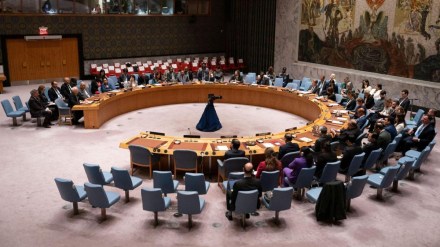The United States, France and a coalition of global allies, including the UAE, Saudi Arabia, and the European Union, have jointly called for a 21-day ceasefire along the Israel-Lebanon border. Announced after tense discussions at the United Nations on Wednesday, the ceasefire proposal focuses on the “Blue Line”, the demarcation between Israel and Lebanon, with hopes of diffusing tensions and paving the way for a potential resolution.
The joint statement, released by the White House, urges both the Israeli and Lebanese governments to immediately endorse the ceasefire, which aims to create a diplomatic window to negotiate peace. According to a senior Biden administration official, the timing is seen as optimal for both sides to agree to a halt in hostilities.
Israel’s airstrikes across Lebanon, which intensified on Wednesday, have already claimed 72 lives, with over 223 wounded. Amid the escalation, fears are growing that the conflict could evolve into a broader Middle Eastern war. Israel’s military chief hinted at a potential ground invasion, a move that could worsen the already dire situation.
Despite the mounting violence, Israeli UN Ambassador Danny Danon expressed support for a ceasefire, stating that Israel prefers a diplomatic solution. However, he placed the blame squarely on Iran, accusing the nation of fueling regional unrest. Iran’s foreign minister, Abbas Araqchi, reiterated his country’s backing of Hezbollah, warning that Tehran would not stand by if the conflict escalated further.
Lebanese Prime Minister Najib Mikati welcomed the ceasefire proposal, though he emphasized the need for Israel to adhere to international resolutions to ensure the ceasefire’s success. “Hopefully, yes,” Mikati earlier told news agency Reuters when asked if a ceasefire was likely soon.
The humanitarian crisis in Lebanon continues to worsen, with half a million people displaced and thousands seeking shelter in schools and public buildings in Beirut. Hospitals are overwhelmed as the death toll rises, making it Lebanon’s deadliest period since the civil war ended in 1990.
The ceasefire discussions come as Israeli Prime Minister Benjamin Netanyahu is scheduled to address the UN General Assembly this Friday, with hopes that his speech may signal a shift toward a diplomatic resolution. Meanwhile, as US President Joe Biden navigates these complex geopolitics, the pressure on his administration to secure peace in both Gaza and Lebanon has intensified.
The situation along the Israel-Lebanon border continues to deteriorate. Israeli airstrikes this week have focused on Hezbollah strongholds in southern Lebanon and the Bekaa Valley, displacing thousands. Meanwhile, Hezbollah has ramped up its rocket attacks, leading to widespread evacuations in northern Israel. In a chilling warning to Hezbollah, Netanyahu declared that Israel was striking harder than the group had anticipated.
For now, global powers are watching closely, urging calm while scrambling to find a peaceful way forward in one of the most volatile regions in the world.
